“Commitment is the moment in life when you seize opportunities and use them to alter your life and destiny”.
Alex Elifas is a contemplative soul and his impending graduation in May is providing him cause to be even more reflective than usual. “St Jude’s has built a big part of my personality”, he says, “Who I am has been shaped by the school”.
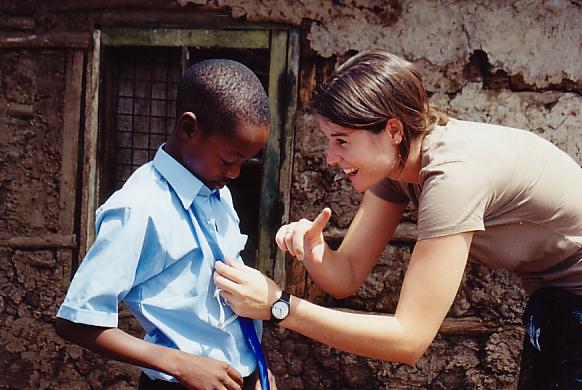
Alex’s time at St Jude’s has been eventful. He’s a bright young man who was able to skip ahead two grades. In his senior years he left the school for one year so as to return to finish his schooling with the rest of the inaugural graduating class of 2015.
He is proud to be finishing with his class and cannot wait for the graduation celebrations. “I look forward to spending time and celebrating with my sponsors, friends and family”, he says.
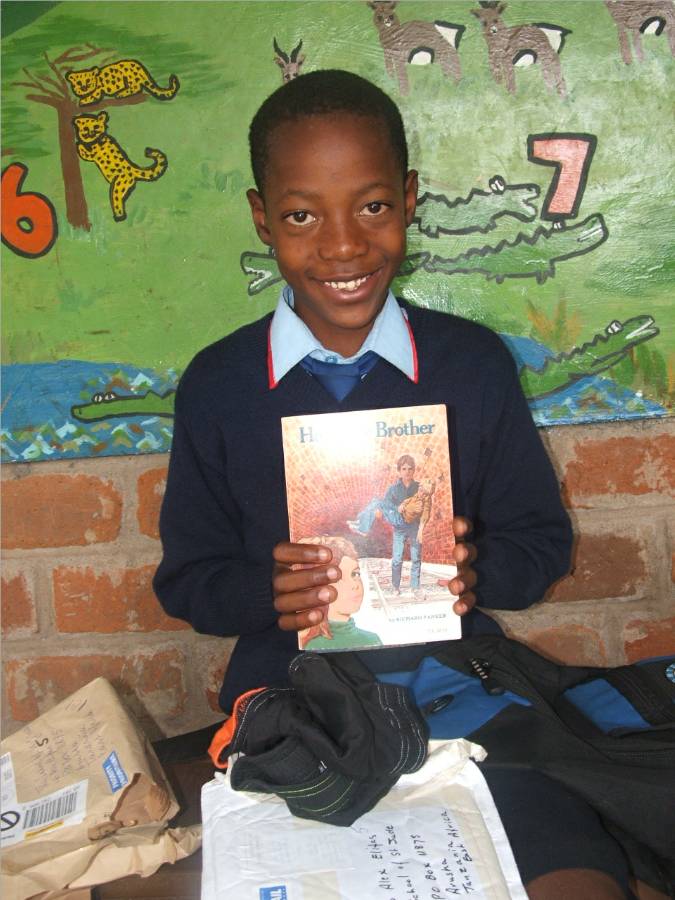
However, despite the overall focus on the senior class, Alex has a more holistic view of his graduation and the influence it will have on the rest of the school. “I am trying to figure out how to have a positive impact on the other students. I want to inspire the younger ones”.
Alex’s time at St Jude’s has had a profound impact on his life. “St Jude’s made me dream differently. Without St Jude’s I couldn’t have the plans I have now. It has given me big dreams.”
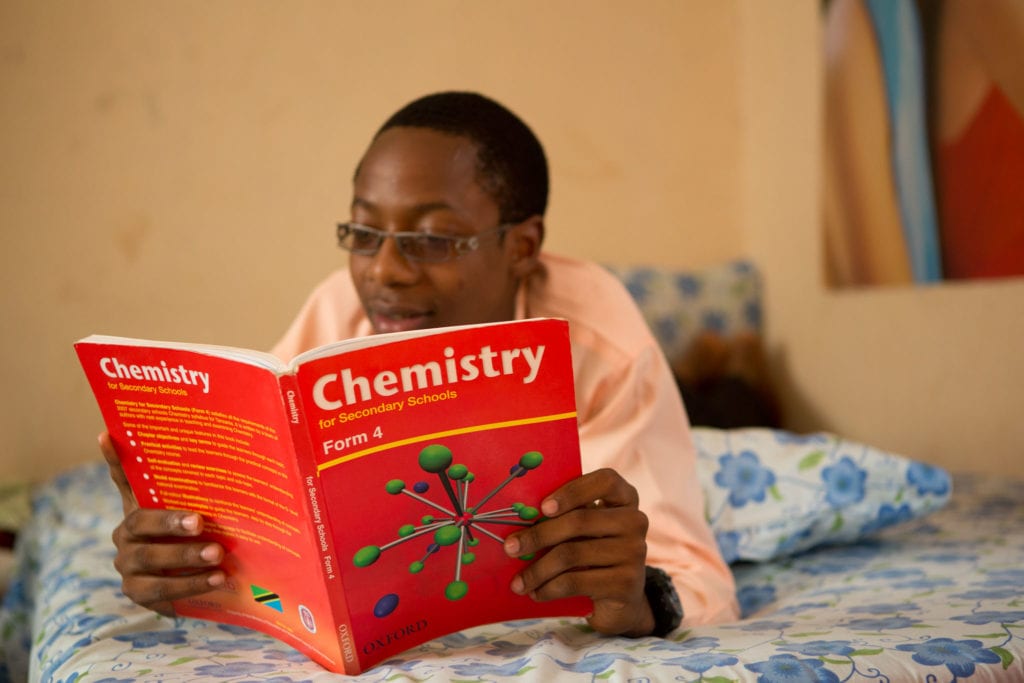
Alex’s dreams are impressive. After graduation he will take part in the St Jude’s community service program. He looks forward to giving back by teaching at a local government school where his scientific knowledge can have a big impact in a region with a desperate shortage of maths and science teachers. He plans to learn French and the keyboard in his spare time.
His long term ambitions are to study electrical engineering with a focus on biomedical engineering. Alex wants to have a positive impact on his country through his chosen profession.
“There are currently no experts in the field of electronics and biomedics in Tanzania”, Alex says, “I will work on different projects to improve the country. I am looking forward to being in a position where I can support or sponsor projects in Tanzania that will have a positive impact on society”.
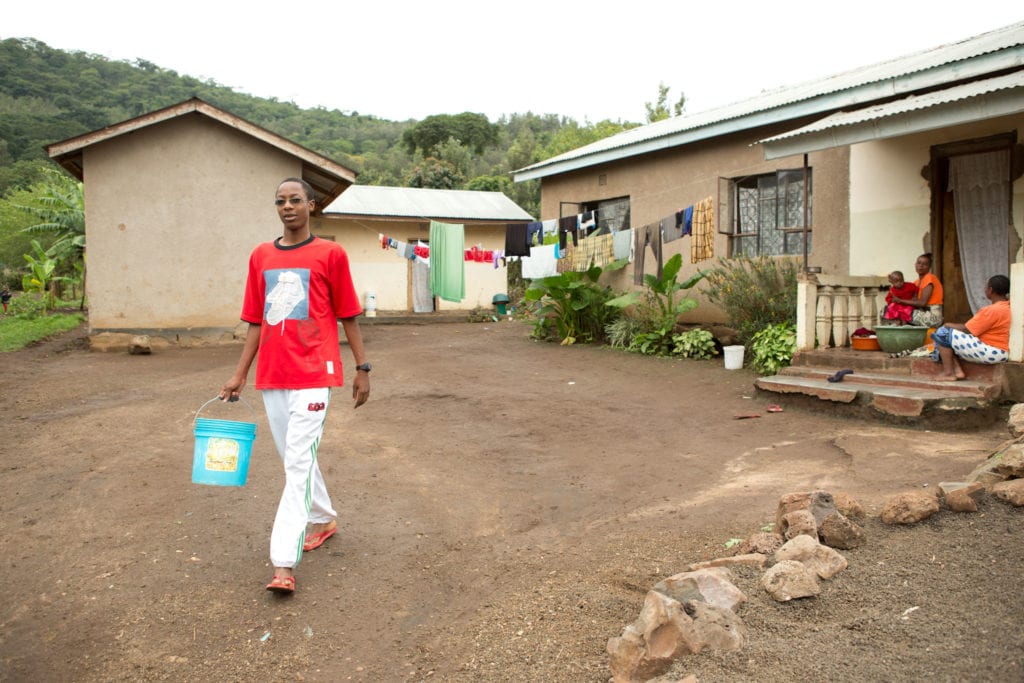
St Jude’s will always play an important part in Alex’s life and it is inspiring to hear him speak of his feelings for the school and his continued involvement.
“Thanks to St Jude’s I had an easy life, a life without struggle,” he says. “Because of St Jude’s I will be someone in the future.”
2014 was a big year for our Form 4 students. They spent it applying themselves to studies that ranged from history to chemistry to biology. Our students began the New Year with feelings of anticipation as they eagerly awaited their exam results to see if all of their hard work paid off. Finally, the results are here! And happily, the answer is a resounding “yes”!
Overall our 126 Form 4 students received stellar results, placing St Jude’s 3rd in the region and 24th in all of Tanzania. Over half of the students achieved a Distinction, the highest possible grade, and 99% of the class achieved a Merit (the second highest grade) or above.
The results indicate our students show particular aptitude for communication, with the class ranking 2nd in the region for Kiswahili. They are also budding scientists and historians, achieving a regional ranking of 2nd in Biology and 3rd in History.
These results are fantastic for all of our students and their teachers who have worked so hard to guide each of them throughout the year. The students are very proud of their achievements, deservedly so, and begin Form 5 with a renewed confidence and excitement for the year ahead.
Form 5 student Elias’s remote Maasai village has already started hailing him as the doctor. They hold faith in this promising young man and his determination to work in the medical field to help his own people.
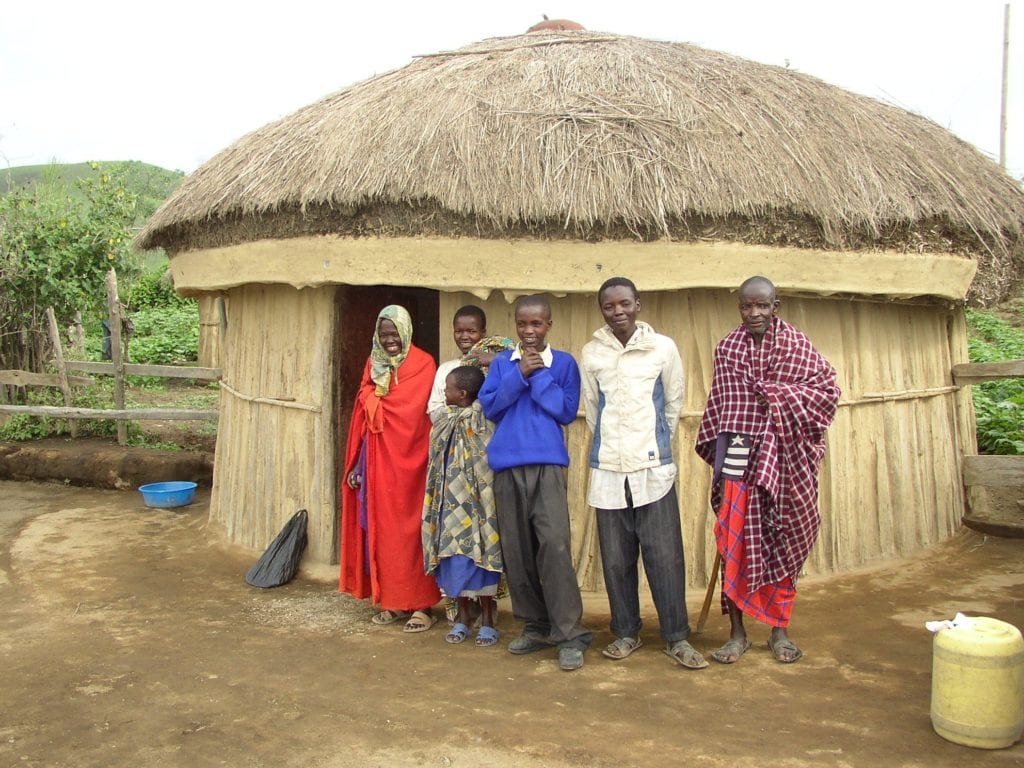
“My aim of becoming a doctor is to help myself, to help with my society, to help Tanzania and to help the world,” said Elias.
As a young boy he lived in a boma, a traditional Maasai mud dwelling in Ilkurot, an area outside of Arusha, with his father, mother, sisters and a brother. Growing up in that community, he became aware of the issues it faced.
“In my community there are so many challenges, mainly because of a lack of education, especially health education.” he said. “Sometimes it is very hard to get the transport to go to town or the hospital, and many people especially in my village don’t know the importance of visiting the hospital or using modern drugs.”
He began his studies at a local government school but his heart was set on getting the best education so he could one day provide medical services to his village. He applied to study at St Jude’s and, in Form 1, started his free, high-quality education at the school.
When he moved to Form 3 he wasn’t placed in Science because he hadn’t met the academic criteria. However, he shared with St Jude’s his great ambition to become a doctor and the strategies he had to help his community. He was allowed to move to Science and obtained Division 1, (the highest grade) in Physics, Chemistry and Biology, which is the combination he’s currently studying in Form 5.
“I hope society will be inspired by me and from there they can follow me,” he said. “I see so many people who don’t get an education because of poverty.”
Education, however, is currently lifting 1,852 impoverished students at St Jude’s out of poverty. Right now, Elias feels blessed that he is able to study the science subjects he is passionate about and is keeping an eye on his dreams.
Encouraging him along the way are the people in his village who see him as a sign of hope for the future and someone who will bring about meaningful change in health and education in their community.
“I’m happy and appreciate so many people calling me Doctor, as they motivate me and I’m already doing a lot to help them by seeing them, doing work and getting them help when they need it,” he said.
We are extremely proud of three secondary students who have achieved exceptional results in a national essay competition. Form 4 students Julieth, Pius and Ebenezer wrote wonderful and insightful essays on ‘The Role of Standards in Promoting Sustainable Agriculture, Food Security and Trade in Africa.’ All three were in the top 10 national winners with Ebenezer coming in first. Here is his winning essay:
Ebeneza's essay: 'Roles of standards in promoting sustainable agriculture, food security and trade in Africa'

Not long ago a logo with an image of the globe caught my eyes as I browsed through the internet, it read thus; “Standards level the playing field”. A few days later, I crossed path with the same logo on the other website. However, this time this logo stuck me not on my “humor” nerve but the meditative one. If indeed, standards level were the playing field, then maybe life on earth would have been impossible without it.
Standards are documented agreements containing specifications or other precise criteria to be used consistently as rules, guidelines or definitions of characteristics to ensure that material, products, processes and services are fit for their purpose. For example, the format of credit cards and smart cards that have become commonplace is derived from an ISO international standard. Adhering to the standards, which defines such features as an optimum thickness (0.76mm), means that the card can be used worldwide.
Standards can be traced back around five to six thousand years ago when the Mohenjo-Daro or Harappa civilizations of Indus valley used standardization for town planning, water supply, drainage, house building and even weights and measures. Eli Whitney, who in 1793 invented the cotton gin, a machine for cleaning cotton fiber, pioneered the development of standardization as an engineering activity. In 1947, the International Standard Organization (ISO) was established to ensure the implementation of standards in the world.
In Africa, standardization is proved to have existed even before the colonial era. In 1970s and 1980s many standards organizations were established in Africa to ensure and implement standardization across the continent, these includes, Tanzania Bureau of Standard (TBS) in 1976 to ensure standardization in Tanzania, Uganda Bureau of Standards (UBS) in 1989 and Kenya Bureau of Standards (KEBS) in 1974 with the same tasks.
Standards have played a big role in promoting sustainable agriculture, trade and food security in Africa. As part of the intellectuals’ society we argue that Africa would have been facing great hunger, economic crisis and insecurity in food supply if it were not for standards .To prove our intellectualism I have confidently jotted these points to show how standards promoted sustainable agriculture, food security and trade in this continent.
Firstly, standards have enhanced the production of quality farm inputs such as seeds and fertilizers which have managed to curb agricultural problems. Food production has been maximized and the continent no longer suffers from hunger. As part of what is done by standard organization in Africa seeds and fertilizers are certified before they are allowed to be sold to farmers. For example, Tanzania-Seed Co Limited has been certified and given permission to supply various seeds within the country and various parts of the world. This is because the company managed to reach the required standards.
On the other hand, standards have facilitated the transfer of technology from different parts of the world to Africa and vice versa. This has encouraged modern agriculture techniques hence boosting up food production in the continent. It was not long when African farmers depended much on hand hoes for farming, hand pipes for irrigation and ashes as pesticides. Due to development and existence of standards in this continent, modern and advanced agricultural system has been adopted. This includes the use of modern tools such as tractors and harvesting machines together with the use of quality pesticides and modern irrigation system. For example, Gezira irrigation scheme enabled Sudan and Egypt to be recognized as the world cotton producers while South Africa became a significant figure in horticulture and dairy production.
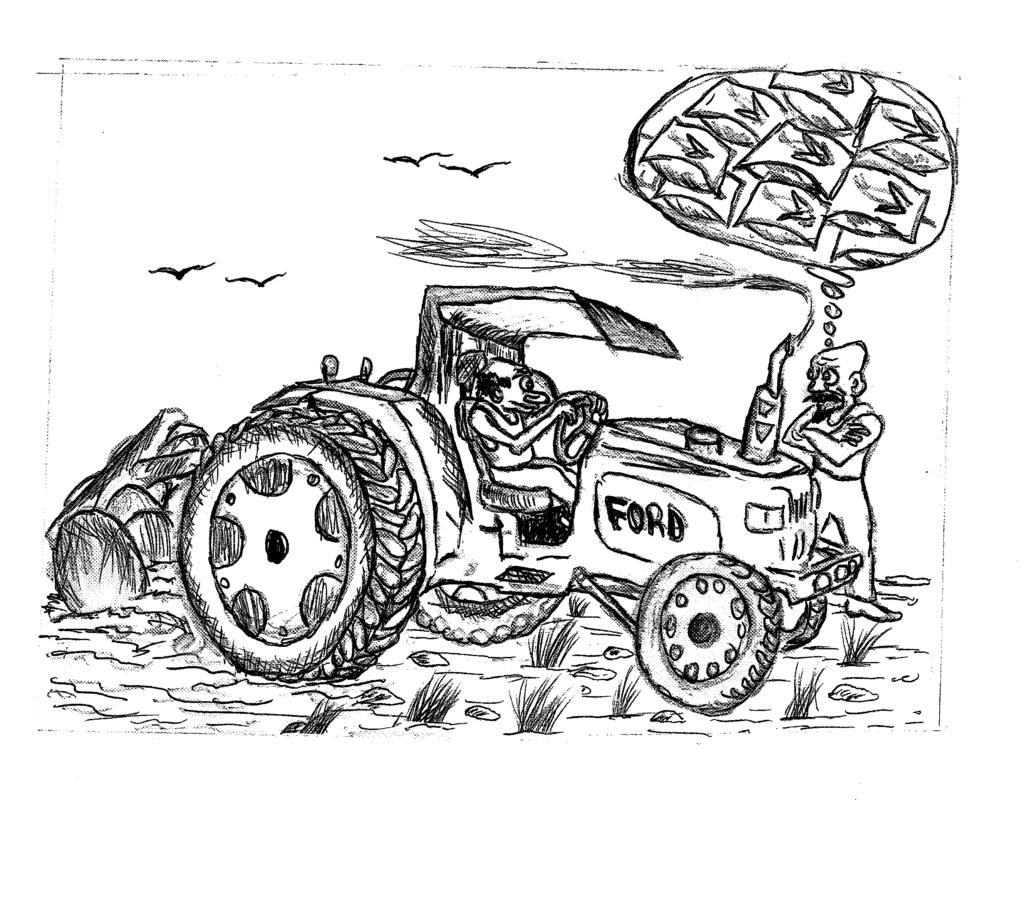
Moreover, environmental protection is among the fruits of standardization in Africa. This has not only created a favorable climatic condition but also fertile soil for agriculture. Machines, which emit much waste such as harmful gases to the atmosphere, are banned to be used. For example, almost all African countries banned the use of two stroke engine Motorcycles and insisted on the use of four stroke engine in order to conserve the environment. To avoid soil being destroyed with waste chemicals from industries standards have provide the criteria on how to dispose wastes.
In addition, standards accelerated the removal of trade barriers in Africa. Restrictions on the export of processes, products and services by the introduction of some technical barriers to trade, such as arbitrary products requirements, are being viewed with great concern. Standards prevent such non-tariff barriers to trade by harmonizing requirements in a manner that promotes fair competition. Purchasers can be convinced about a quality level of a product that has been manufactured according to a recognized standard. Example in East Africa free market economy became possible. Due to this customers are no longer after brand names of products neither their country of origin but their qualities. This is why you should not wonder seeing Kenya being the main steel supplier in Tanzania while Tanzania cement is highly demanded in Kenya.
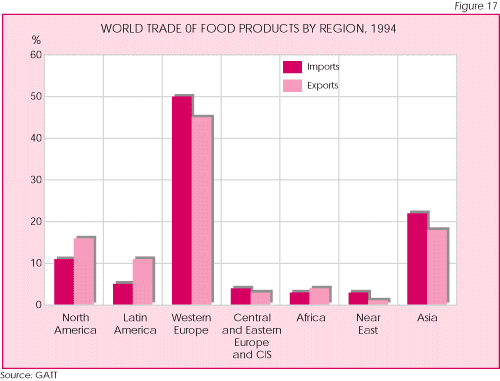
Likewise, interchangeability, and interdependence of products, processes and service became possible because of standards existence. For example Africa have been depending much on America and Europe for electronic equipments while these continents depend much on Africa for raw materials such as minerals and crude oil. This is possible due to products, processes and services being quality as approved by standard bodies. Libya for instance depends much on east Africa and West Africa for food while these countries in return depend on Libya for crude oil.
However, standards led to development of infrastructures. This has made trade to be conducted smoothly with less cost and maximum profit. For example air, marine and surface transports widen import trade and shortened the time goods and services could reach customer.
Furthermore, standards have been responsible for ensuring hygienic and safety conditions in food production. For example, the standards for sausage manufacture requires meet to be boiled at 100 degrees of centigrade in order to kill the microorganism, which causes diseases to human being. Officials from standard bodies to ensure that they meet the requirements have inspected all industries and factories. Those that do not meet the requirement are closed and fined. This has become a lesson to other industries and factories to always ensure that it meet the required standards.
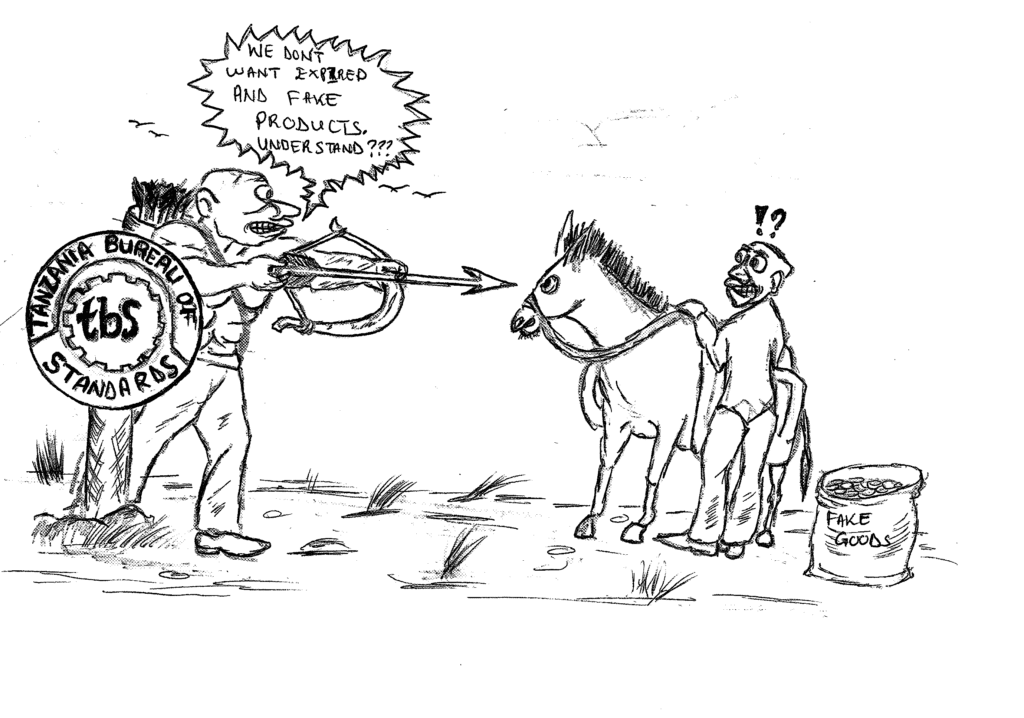
Not only has standards developed and promoted better methods of preserving and storing food products but also, ensured constant supply of food in Africa. Standards for packaging and preservation have been introduced to make sure that people’s health is protected. This includes determining the expired date for these products to avoid expired goods being sold to people. To avoid being toothless barking dog standards organizations managed to put strict rules governing all products, processes and services production activities. This has maintained discipline in maintaining and implementing standardization.

Finally I would love to explicate per-se that standardization is part of our life. There is no way we can survive without it. Just as we need, food every day it would have been much better if we treat standards in the same way to ensure efficiency in processes, products and services.
Students at The School of St Jude have scooped up awards at the recent Science Fair at the Nelson Mandela African Institute of Science and Technology in Arusha.
The institute invited some of the best students from a range of local schools including St Jude’s and Ilboru Secondary School to showcase their innovative scientific and technological projects at the fair on Friday.
The institute’s Fair and Nobel Symposium ran for three days as part of Nelson Mandela week celebrations. The symposium speakers spoke of achievements of last year’s Nobel Prize winners in Physics, Chemistry, Literature, Peace and other areas, to inspire young talented minds to be inventive and creative.
17 students from St Jude’s featured seven projects at the fair, from an SMS polling project for voting to a refrigerator which doesn’t run on power and is designed to help people in local, rural communities who don’t have electricity.
Ilboru Secondary School won first prize while St Jude’s secured second place for its students’ project of redesigning a helicopter. St Jude’s also received a third-place prize for its demonstration project for Gamma rays detectors which can check substances and dangers within an environment. Form 6 students, Hosiana and Emmanuel, worked on the idea with Professor Chary from Canada.
“The chemicals which are used in industry and mines contain a lot of radioactive elements and emissions, so the detector can be used to check a wide range of substances in our environments or any dangers which could harm people in our society or those working in those areas,” said St Jude student, Hosiana.
The Form 6 students who participated in the event felt it helped to further develop their confidence and skills in the lead up to their graduation.
“This event has established a network of professionals, including technologists, academics, engineers and professors to rely upon in the future when we need mentoring and support for science based competitions,” said Mr. Mcharo, St Jude’s Head of Physical Science Department and Assistant Academic Master. “For our school, this is a huge step to be recognised by an international university.”
During the awards, Professor Chary noted the high calibre of the projects at the fair and how all of the students rose to the occasion. Every student who participated in the event received a certificate, as well as the winners receiving medals and trophies.
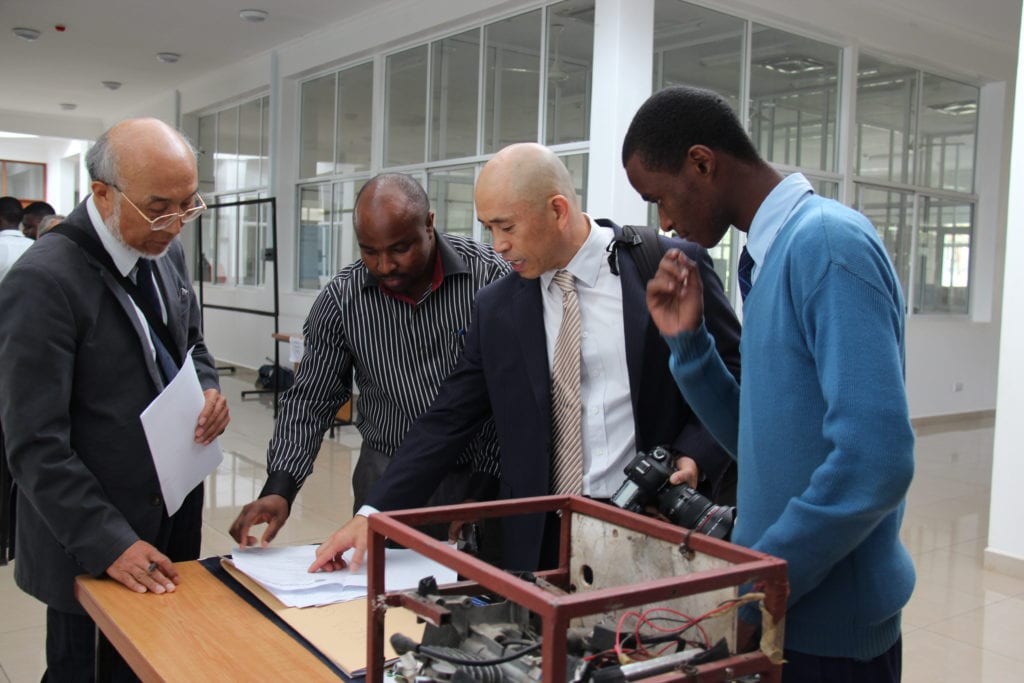
Hundreds of students from The School of St Jude proudly celebrated Tanzanian, African and other nationalities at its recent Cultural Day held at its secondary campus.
The students did a range of creative performances spanning from hip hop, modern and traditional African dances as well as drama pieces showing a tribal King’s lunch and the hard work of African mamas.
“It was wonderful to see the creativity and imagination of the students,” said St Jude’s School Director Jon Ford. “It shows the wide range of skills our students have as well as the amazing academic achievements in the National Exam, including recently scoring 90 per cent Division 1 in the Form 4 mock exam.”
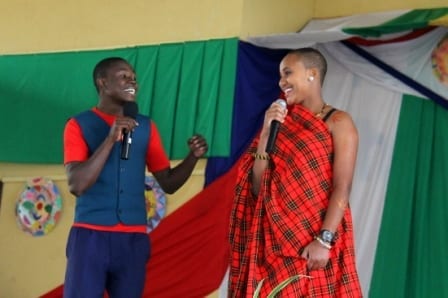
The fashion show was a highlight of the day with the students spending hours stitching together unique, colourful designs using kitenge, other East African fabrics and local produce including maize and leaves. It was a mark of respect for their culture but students also used Australian and US designs to show their appreciation of other nationalities.
“I used kanga, tissue paper, plastics and wood as they were local resources I could easily find,” said Anastazia, Form 3 student at St Jude’s. “My dad is a tailor so I feel sewing is in me as I love designing.”
Anastazia’s well-crafted clothes caught the eye of the judges and she won overall first prize and for her fashion label, Nyumbani Design.
Two talented St Jude’s secondary musicians, Elisante and Dorcas put on a top performance and were surprised and excited to receive a recording session given by sponsor, Fnouk Studios, for their efforts.
“I was really impressed by the students’ designs and performances and how Cultural Day builds a lot of confidence with the kids,” said Sune Mushendwa, Director of Fnouk Studios.
The event’s other sponsor, Kase Stores Ltd, gave book vouchers for the 1st, 2nd, and 3rd place overall winners.
Guests of honour included Miss Arusha Lillian Deus and Hisia, a Tanzanian singer and songwriter based in Nairobi who gave an inspirational speech on stage to the students about facing hard times in life.
“From an artist perspective, we have to do everything, when the road is rough and there are a lot of challenges, don’t let the challenges get you down, shake off the dirt and keep going,” said Hisia.